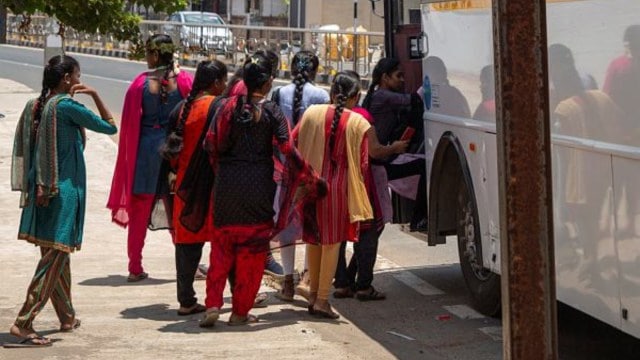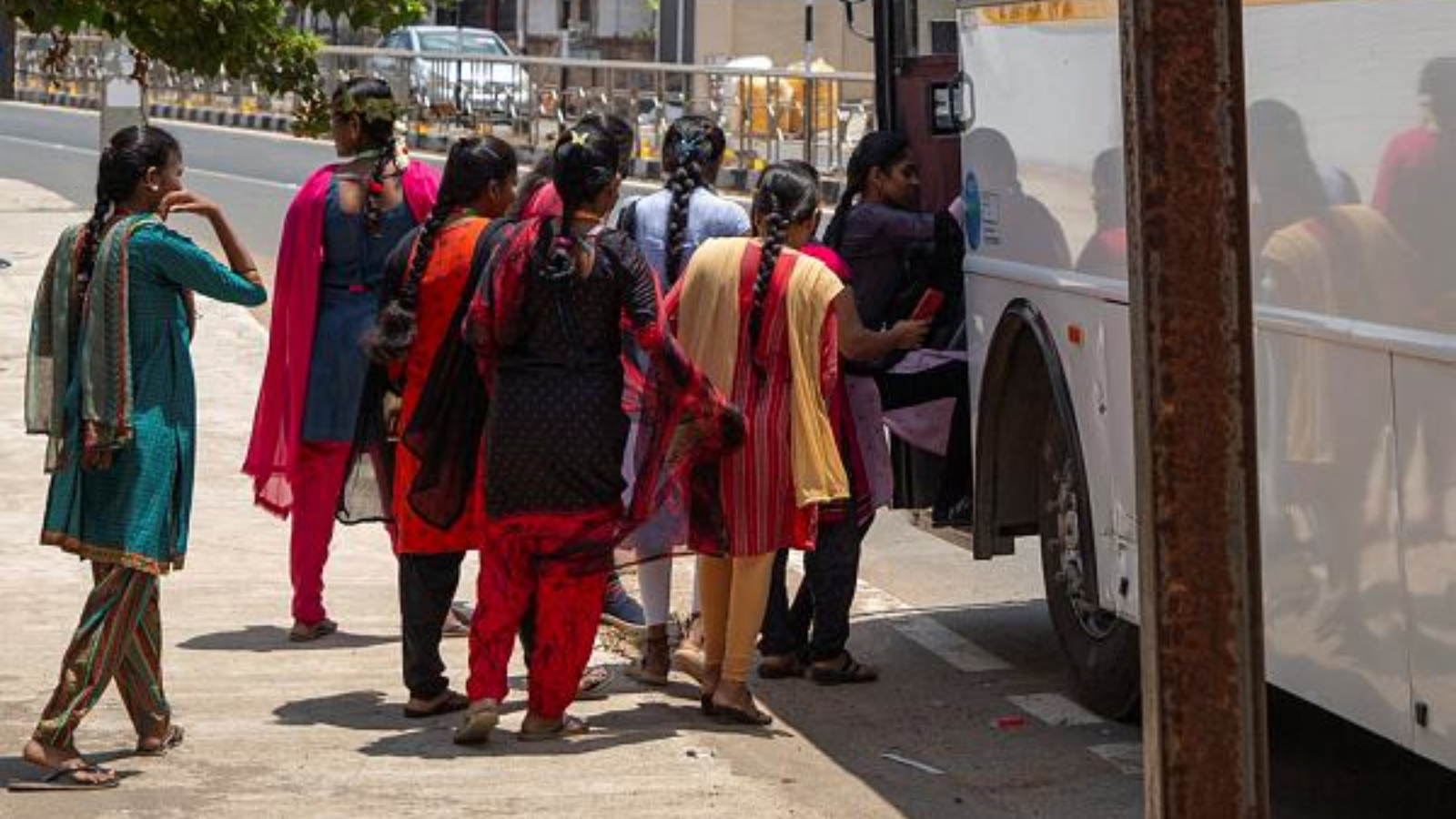
Imagine, if you can, a workforce dominated by women. Imagine, too — and this might be easier given the certainty of the firefighting working women across the spectrum carry out in their own backyards — the constraints each of them have had to overcome to be where they are. What might thread their disparate stories together? Marriage and motherhood penalties at the workplace. Check. A loop that doesn’t stop at 9-5 but spills over all hours, all day, every day. An ability to multi-task that allows them to carry out a precarious balancing act nonetheless. Check and check.
When it comes to the last though, especially in blue-collar jobs, including gig work, the imagination seems to falter. A Reuters investigation of Apple iPhone maker Foxconn‘s assembly headquarters in Tamil Nadu’s Sriperumbudur has thrown up anomalies in the hiring process – married women are apparently rejected on grounds of pregnancy, family commitments, greater number of leaves or, as one former HR executive with the firm told the journalists, “cultural issues”, including and not limited to wearing jewellery that interferes with the production process.
The report has, expectedly, created a ripple. Over the years, Foxconn‘s track record as an employer has come under scrutiny, especially in China, where its biggest iPhone plant operates out of Zhengzhou and where a spate of employee suicides over a decade ago had led to an investigation of working conditions and terms. With the present report on India, the Ministry of Labour and Employment has sought a report from the Tamil Nadu labour department, prompting Foxconn to come out with an informal statement that reiterates its commitment to equality in the workplace. Twenty-five per cent of their recent hires, it says, have been married women. With roughly 70 per cent women employees, its Tamil Nadu firm is the largest factory for female employment in the country, with total employment touching 45,000 workers at its peak.
On paper, it sounds impressive. Yet, in India, where political parties have focused on women as a constituency and where the PM has repeatedly reiterated his government’s commitment to gender parity, equality often continues to be notional — women’s labour force participation stood at 32.7 per cent in 2023 vis-a-vis 76.8 per cent for men. The loopholes are many and the struggle to enforce it on the ground is bogged down by an inhibiting process perpetuated by a profound lack of imagination.
In the report about Foxconn, for instance, an applicant’s question about childcare provisions in Sriperumbudur receives a swift rebuttal from a recruiter – married women were unwelcome. It is this failure of the imagination that refuses to consider alternatives, that will not ensure creches at workplaces, beneficial for both male and female employees, or consider the disproportionate care burden on women. It will take recourse instead in patriarchal arguments such as a deficit in work hours or a greater number of leaves. It will legitimise the lack of opportunity or pay imbalance by holding up the hurdles as yardsticks, putting off more and more women from necessary employment.
This failure is not that of the government or of the political parties alone. It begins with individuals and families and seeps into organisations, from society into governments. Far too many women are told that they are “fortunate” to have families that “allow” them to work outside or have partners who help around the house. Even more are expected to return home after a long day and see to its smooth functioning. The Progress on the Sustainable Development Goals: The Gender Snapshot 2023 report by UN Women and UNDESA warned that unless measures were taken, an entire generation of women would end up spending a disproportionate amount of time on housework in comparison to men, hemmed in by prejudicial norms. It is a disconcerting thought.
Earlier this year, in Union of India and Others vs Ex. Lt. Selina John case, the Supreme Court of India observed that rules which penalise working women on the grounds of marriage are unconstitutional: “Terminating employment because the woman has got married is a coarse case of gender discrimination and inequality. Acceptance of such [a] patriarchal rule undermines human dignity, right to non-discrimination and fair treatment.” John was a former officer in the Military Nursing Service but her case only serves to show the discrimination that extends across the employment matrix, amplified, as always, among the economically weaker. For India to emerge as the third-largest economy in the world that puts women at the centre of change, it will need to reorient its metrics of assessment.
There is a proverb that generations of Bengali women have grown up listening to and believing in: Je raadhe, she chul-o bnadhe (The one who cooks also takes care of her appearance). In essence, that multi-tasking comes innately to women. There would, doubtless, be equivalents of this in other Indian languages, powering women on to do more, to take on more, because they can. The support system? That’s where the imagination has to come in.
© The Indian Express Pvt Ltd
First uploaded on: 27-06-2024 at 19:52 IST



